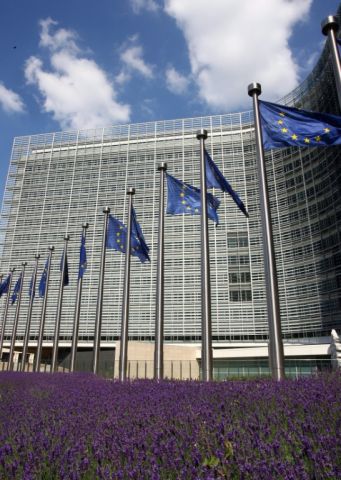EU institutions

The European Union has several institutions which play a direct role in the bloc's workings.
Here is an overview of the main ones.
- European Council -
The council is made up of the heads of the 27 EU member states, the European Commission president and the high representative for foreign affairs. It defines the general political direction and priorities of the European Union.
It holds most of its summits in Brussels.
- Council of Ministers -
Made up of ministers in different policy areas from EU member governments, it adopts EU laws and coordinates EU policies.
Each EU country holds the Council presidency on a six-month rotating basis.

- European Commission -
The EU executive proposes and enforces legislation and implements policies and the EU budget.
A team, or college, of commissioners is made up of one from each EU country.
Its headquarters are in Brussels.
- European Parliament -
The Parliament is a directly elected EU body with legislative, supervisory and budgetary responsibilities.
Created in 1952 as the Common Assembly of the European Coal and Steel Community, it became the European Parliament in 1962 and was directly elected in 1979.
It splits its work between Brussels, Luxembourg and Strasbourg in eastern France, where it holds its monthly plenary sessions.
There are 705 Members of the European Parliament.
- Court of Justice -
The Luxembourg-based Court of Justice interprets EU law to make sure it is applied in the same way in all EU countries, and settles legal disputes between national governments and EU institutions.
It is divided into two courts.
The Court of Justice is made up of one judge from each EU country plus 11 advocates general.
The lesser General Court is made up of 47 judges, which will be increased to two judges from each country, in 2019.
- European Central Bank -
Based in Frankfurt the ECB's role is to manage the euro, keep prices stable and conduct EU economic and monetary policy.
Established in 1998, it is made up of a president and vice president and governors of national central banks from all EU countries.
- Others -
The EU has a number of other institutions, including a Court of Auditors, a European External Action Service, a Committee of the Regions, the Economic and Social Committee, a European Investment Bank, an Ombudsman and a European Data Protection Supervisor.
